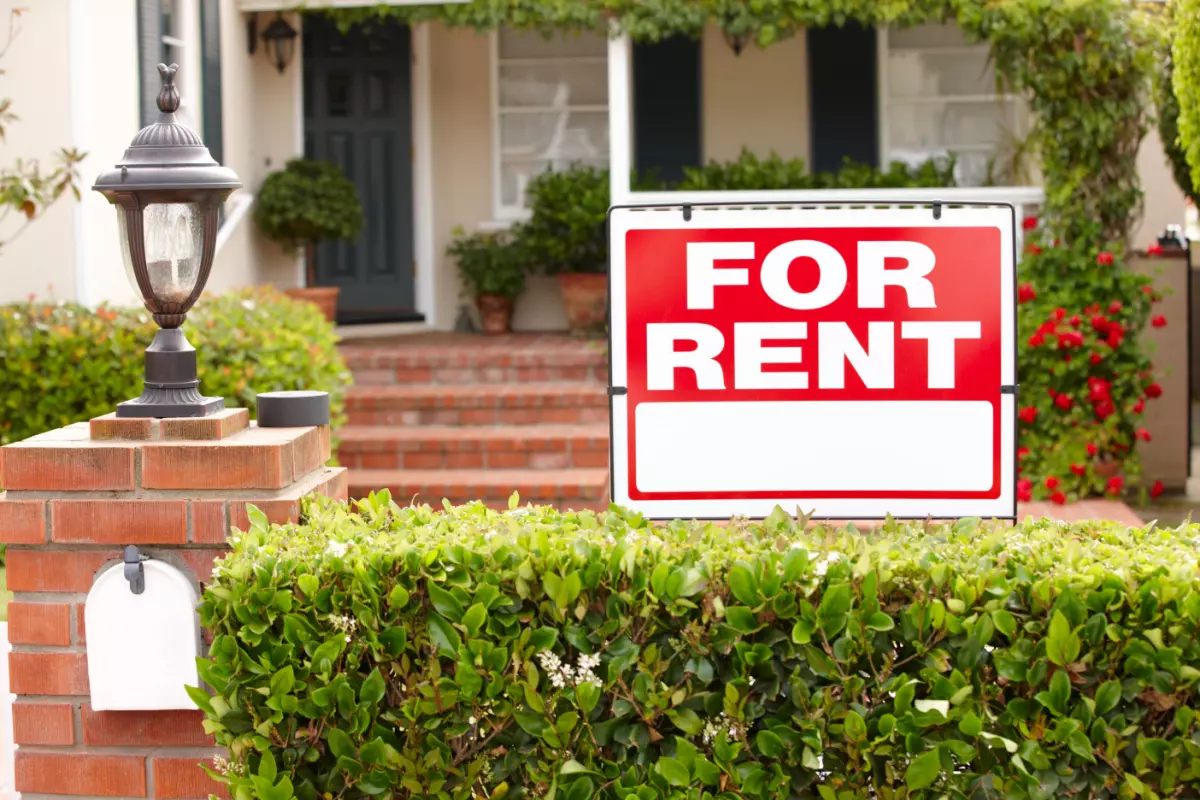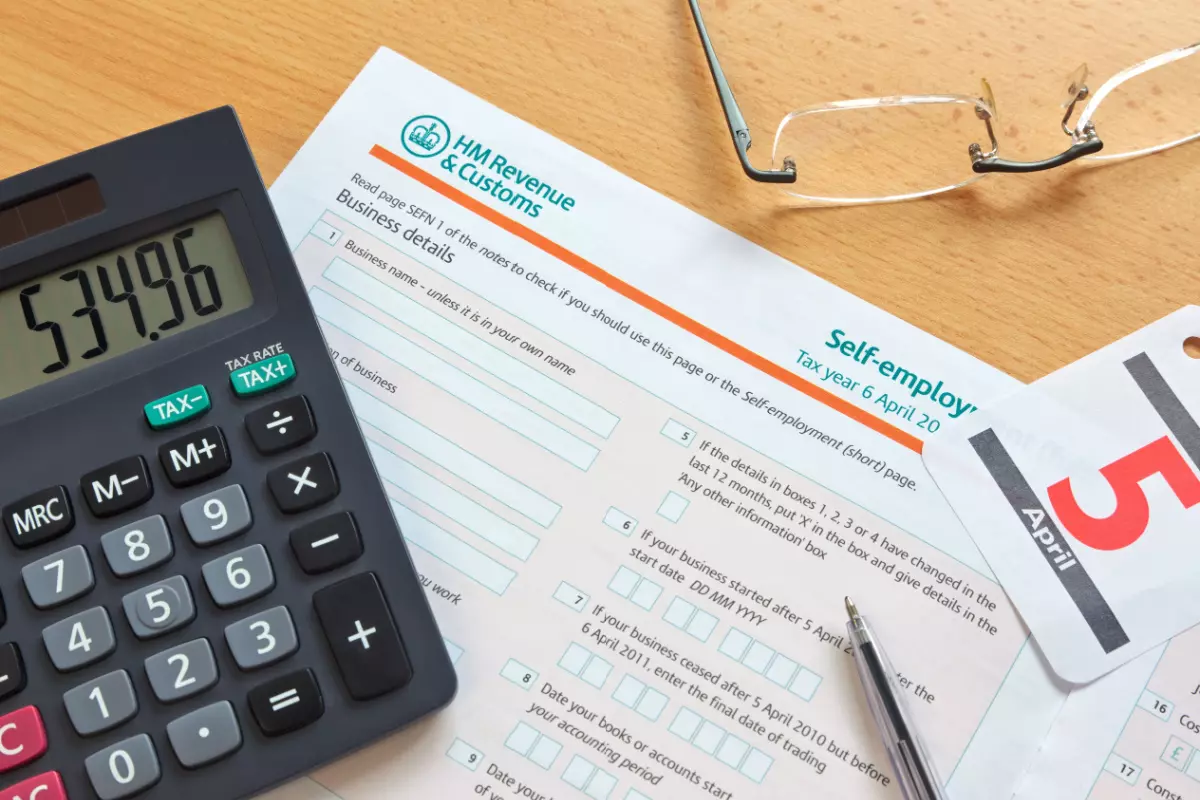Imagine you’ve just acquired your first rental property in Manchester. The rent cheques are flowing in, but so are the tax implications.
Navigating the world of property management becomes smoother once you’re well-versed with rental income tax.
In this comprehensive guide, we’ll break down all you need to know about rental income in the United Kingdom. We’ll distinguish between taxable and non-taxable income and explore legitimate strategies to minimise your tax burden. Now, let’s delve deeper into it!
What Is Rental Income?
Rental income is the revenue you generate from leasing out your property to tenants. It isn’t confined to just residential properties but also encompasses income from commercial properties, furnished holiday rentals, and even renting out a room in your home.

Rental income in the UK is classified as any money you receive from tenants for:
- Rent
- Repairs and maintenance
- Utilities (electricity, heating, water)
- Furniture usage
- Cleaning of communal areas
- Non-refundable deposits or refundable deposits that are not returned
Taxable vs. Non-Taxable Income
In the UK, some income from rental properties is taxed, while others aren’t. This section will untangle what’s taxable and what’s not.
Taxable income includes any income from rent, cleaning and maintenance services, furnished holiday rentals, and commercial property rentals above £12,570 annually.
On the other hand, these are the instances where your rental income is not taxable:
- If your total annual income is less than £12,570,
- Under the Rent-a-Room Scheme, if you rent out a room in your own home, and your rental income does not exceed £7,500 annually.
Here’s an example to demonstrate how it works. Assume a landlord rents their property for £800 per month. The total yearly income from the rental would be £9,600. Since this amount is less than £12,570 annually, the landlord would not be taxed on any of the rental income.
Calculating Rental Income Tax
As a landlord, you’re required to pay tax on the profit you make from renting out property. However, you are entitled to subtract allowable expenses from your rental income.
Allowable expenses are costs associated with the day-to-day management and upkeep of your rental property. Here is a list of costs that are eligible for deduction as allowable expenses:
- Accountant’s fees
- Insurance
- Cleaning and gardening expenses
- Council Tax
- General maintenance and necessary repairs to the property (but not improvements)
- Legal fees for lets of a year or less
- Legal fees for renewing a lease for less than 50 years
- Letting agent fees and management fees
- Household expenses, including utility bills, water, gas, and electricity
- Other direct costs, such as phone calls, stationery, advertising, and vehicle running costs related to renting out the property
You might also qualify for tax relief when you spend money to replace what’s termed a domestic item. This tax relief includes:
- Beds
- Carpets
- Crockery and cutlery
- Curtains
- Fridges
- Sofas
To be eligible for this relief, you must have purchased the domestic item specifically for tenant use in a residential property, and the item you replaced should no longer be in use within the property.

On the other hand, these are examples of costs that don’t qualify as allowable expenses:
- Capital expenditure, such as buying a property or renovating it beyond wear and tear
- Mortgage interest and payments
- Personal expenses (such as a tablet for personal use that you occasionally use for business tasks)
- Phone calls not related to your property rental business
After deducting all the allowable expenses from your gross rental income, you get to the taxable income amount.
How Much Tax Do You Pay on Rental Income in the UK?
In the UK, rental income is taxed at different rates depending on your total annual income.
The UK tax rate on rental income is 0%, 20%, 40%, or 45%.
| Income Tax Band | Taxable Income | Income Tax Rate |
| Personal Allowance | Up to £12,570 | 0% |
| Basic Rate | £12,571 – £50,270 | 20% |
| Higher Rate | £50,271 – £125,139 | 40% |
| Additional Rate | £125,140 and above | 45% |
Let’s assume a landlord receives a yearly income of £60,000 and has no other sources of income. Here is a breakdown of your taxable income:
- For the first £12,570 of your rental income, you pay 0% tax.
- For the next portion of your income, from £12,571 to £50,270, you pay 20% tax. Tax for this bracket: (£50,270 – £12,570) × 20% = £37,700 × 20% = £7,540
- For the final portion of your income, from £50,271 to £60,000, you pay 40% tax. Tax for this bracket: (£60,000 – £50,270) × 40% = £9,730 × 40% = £3,892
Total tax: £0 + £7,540 + £3,892 = £11,432
Furthermore, it’s worth noting that your rental income isn’t viewed in isolation. It’s considered alongside any other sources of income you may have, such as income from a job or business. The combination of these income sources may potentially move you into a higher tax bracket, which can influence the amount of tax you’re liable to pay.
Here’s a hypothetical example to demonstrate the process:
- You earn £25,000 yearly from your job.
- You rent out your property and earn an additional £30,000 yearly from it.
- You claim £5,000 out of this income as allowable expenses.
First, we need to determine the total taxable income.
- Total taxable income = income from job + rental income – allowable expenses
- Total taxable income = £25,000 + £30,000 – £5,000 = £50,000
Now, let’s calculate the rental income tax:
- For the first £12,570 of your taxable income, you pay 0% tax.
- For the next portion of your income, from £12,571 to £50,000, you pay 20% tax. Tax for this bracket: (£50,000 – £12,570) × 20% = £37,430 × 20% = £7,486
- Since your income is not above £50,270, you don’t pay the 40% or 45% tax rates.
Total tax = £0 + £7,486 = £7,486
Sometimes, landlords can end up spending more on property-related expenses than they earn from rent. This results in a financial loss. When this occurs, the law allows landlords to use this loss to reduce their taxable rental income in future years.
For example, let’s say you spend £15,000 on property repairs in year one but only earn £10,000 from rent. This means you have a loss of £5,000. You can record this loss when you file your taxes. Then, if you earn a rental profit of £8,000 in year two, you can subtract the £5,000 loss from it.
Year One:
- Total Expenses: £15,000 (This is what you spent on property-related costs)
- Rental Income: £10,000 (This is what you earned from renting out the property)
- Loss Calculation:
- Total Expenses (£15,000) – Rental Income (£10,000) = Loss of £5,000
- So, for year one, you have a financial loss of £5,000.
Year Two:
- Rental Profit: £8,000 (This is the profit you made from renting out the property)
- Loss From Year One: £5,000 (This is the loss you’re carrying forward from year one)
- Taxable Income Calculation:
- Rental Profit (£8,000) – Loss from Year One (£5,000) = Taxable Income of £3,000
However, since the taxable income of £3,000 is below the £12,570 threshold, you won’t have to pay any rental income tax in year two.
How to Avoid Paying Tax on Rental Income
We want to clarify that avoiding taxes is not a legitimate option. Attempting to evade taxes is both illegal and subject to severe consequences, including fines and potential criminal charges. Therefore, maintaining full compliance with HMRC regulations and fulfilling your tax obligations as a responsible landlord is an absolute necessity.

However, some legal and ethical ways exist to minimise the total taxable amount on your rental income.
Optimise Allowable Expenses
Ensure you claim all legitimate expenses related to your rental property, including property management fees, insurance, and property repairs. By diligently recording and claiming these expenses, you can legitimately reduce the taxable rental income.
Claim Home Office Expenses
Designating a part of your home as a legitimate office for rental property purposes allows you to deduct associated office expenses when filing your tax return. For example, you can claim the transportation expenses directly related to your rental business.
Use the Rent-a-Room Scheme
If you’re renting out a room in your primary residence, take advantage of this scheme. This allows you to earn up to £7,500 annually tax-free. If you rent out additional properties or have other rental setups, this scheme only applies to the room in your main house, not other rental incomes.
Consider Establishing a Limited Company
Setting up a limited company to manage your rental properties can offer potential tax advantages, especially if you’re paying over 25% through the regular rental income tax structure. Under a corporate structure, rental profits are subjected to the corporate tax rate of 25%. While you can lower your rental income tax obligation, setting up a corporation comes with its set of responsibilities, such as additional fees and legal requirements.
Carry Forward Rental Losses
Landlords sometimes incur expenses that can’t be fully deducted in the same tax year. However, these losses can be deducted from a future year where you have positive rental income. When you have a profitable year in the future, you can use the previously unclaimed losses to reduce your taxable rental income. To qualify for this, you must own at least 10% of the rental property and exercise sound judgment in your tax reporting.
Sum Up
In the intricate world of UK rental income tax, you have the keys to unlock tax efficiency. By understanding what’s flexible, leveraging allowable expenses, and exploring strategic options, you can pave a brighter path to financial success. Remember, compliance with HMRC rules is your compass. So, embark on your property investment journey with confidence!